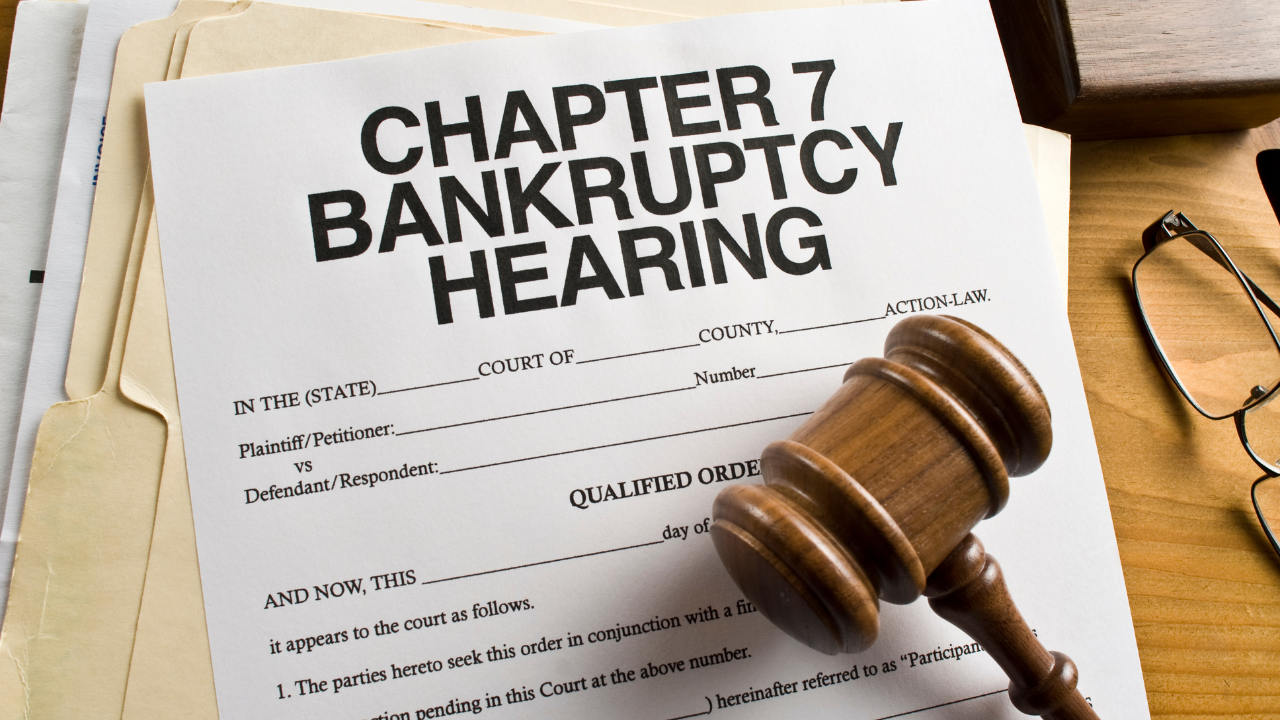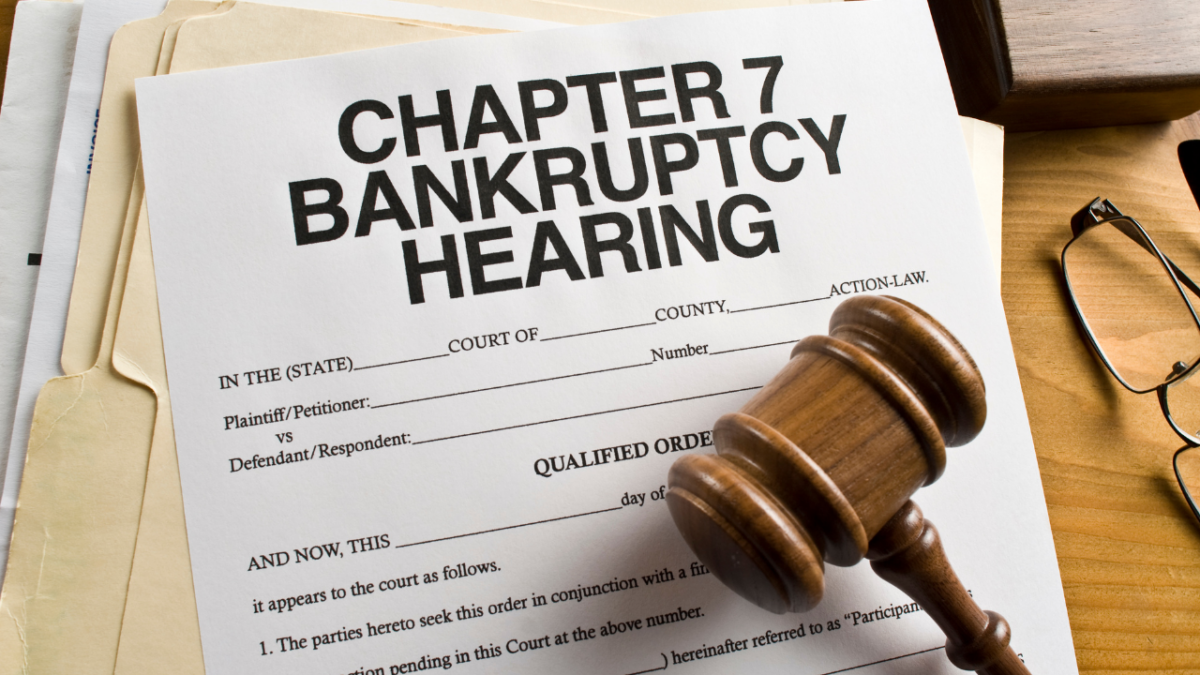Can Student Loans Be Discharged In Bankruptcy
Yes, student loans can be discharged in bankruptcy. But there are several caveats to this general statement. You can only get your federal student loans discharged in bankruptcy. You cannot discharge private student loans.
To discharge student loans in bankruptcy you have to file a separate action. This is known as an “adversary proceeding”. Finally, you’ll have to prove that repaying the loan would impose ‘undue hardship’ on you. But there is no legal standard that defines undue hardship. This varies from one jurisdiction to another. These conditions make it difficult to discharge student loans.
Here’s what you need to know about discharging student loans in bankruptcy.

What Is Student Loan Bankruptcy?
Under U.S. Bankruptcy laws, there’s no special category for student loan bankruptcy. To discharge federal student loans, you have to first file a Chapter 7 or Chapter 13 bankruptcy. Then you have to complete the additional step of filing an adversary proceeding. This last step is a mandatory requirement for discharging student loans.
But, you cannot discharge student debt by itself through bankruptcy. It only gets discharged if you are facing overall financial challenges. If student loans are your only problem, you cannot file a bankruptcy claim. You have a better chance if your entire finances are messed up.
How Declaring Bankruptcy Can Help You
When you file a bankruptcy petition, wage garnishment has to stop. In addition, debt collectors cannot harass you to make payments. They must leave you alone while your case is in progress or until the court permits. Halting collection activities gives you much-needed time to catch up on your finances. This can stop the downward debt spiral.
How To File for Student Loan Bankruptcy
Filing for student loan bankruptcy is a long and tedious process. You must file Chapter 7 or Chapter 13 bankruptcy before petitioning a judge to discharge your student debt. This involves completing a lot of paperwork. You’ll need to disclose your income, assets, expenses, and debts. Before court proceedings start, you’ll have to undergo credit counseling sessions.
Step 1: File Chapter 7 or Chapter 13 Bankruptcy
So, the first step is to decide what type of bankruptcy you’re filing – Chapter 7 or Chapter 13.
- You may be eligible to file Chapter 7 bankruptcy if your current monthly income is below the state median. A court-appointed trustee will sell your nonexempt assets. The proceeds will be used to pay off your creditors. If the funds are still insufficient, the court discharges the remaining outstanding.
- You can file Chapter 13 bankruptcy if you have enough equity in your home and don’t want to lose it to foreclosure. With a Chapter 13 bankruptcy, you have to repay creditors within 3 to 5 years using up to 100% of your disposable income.
Step 2: File an Adversary Proceeding
After filing for bankruptcy, you have to file an adversary proceeding. This extra step requires you to show the bankruptcy court that you have an “undue hardship”. This is the most challenging part of getting student loans discharged in bankruptcy. There are no clear rules defining what constitutes undue hardship. Every jurisdiction has their own standard for defining this term.
In most cases, you will have to prove that:
- Your income has been below the federal poverty line for many years
- You would not be able to maintain a minimal living standard if forced to repay the loan
- The financial hardship is likely to continue for much longer
- You have a serious mental or physical illness or a permanent injury
- Your only source of income are disability checks
- You have a child with serious illness who requires round-the-clock care
- You’ve made good faith efforts to repay the debt before pursuing bankruptcy
The court will assess your circumstances and determine whether repayment would cause undue hardship. Remember, your creditors may be present in court during the adversary proceeding. They may also challenge your request.
Possible Outcomes of Your Bankruptcy Proceeding
The court will consider several factors before determining the terms of the bankruptcy. There are three possible outcomes of your bankruptcy proceeding:
- Your student loans may be fully discharged. In this case, you won’t have to repay the outstanding amount. The lenders will also have to stop all collection activity.
- Your student loans may be partially discharged. In a partial discharge, you will have to repay a portion of the outstanding amount. The court will determine how much you have to repay.
- Your student loans may not be discharged. In this case, you will have to repay the outstanding loan amount. But the repayment terms may be different from the original terms. For example, the court may lower the interest rate to make the payments more affordable.
If your loans are not discharged but you still can’t afford the payments, you’ll need to explore other options. One option is to switch to an income-based repayment plan. This plan bases your monthly payments on your income so they are always affordable.
Filing For Student Loan Bankruptcy – Important Things to Know
Bankruptcy is not an ideal solution to your financial problems. Besides being tedious, it has several downsides. Bankruptcy courts do not discharge student loans easily. They will assess your claim in detail and only consider it if they find that circumstances are beyond your control.
Another downside is that you could end up owing more on your loans. The court will determine your monthly repayment amount to each of your creditors. If they lower your monthly payments, you’ll accrue more interest on your student loans.
Filing bankruptcy costs money. If your claim is not successful, you’ll have lost that money too.
Finally, bankruptcy remains on your credit history for up to 10 years. This could serious damage your credit score and make it difficult to get any loans in the future.
If you need help with your student loan financing, contact one of our financial planning advisors today.
We hoped you enjoyed this article! Remember, you can and potentially lower your monthly student loan payments and save money.





